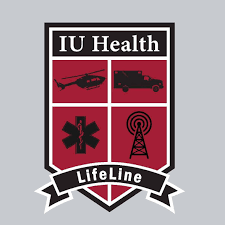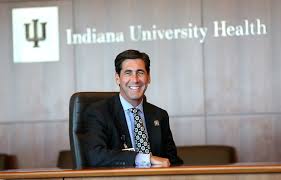
INDIANA – Indiana University Health has awarded $9.63 million to 14 community partners working to improve the lives of Hoosiers in need.
The grants come from the $200 million Community Impact Investment Fund (CIIF), which is administered by the IU Health Foundation to address key social and environmental factors that impact people’s health outcomes. Yearly grants from the foundation come from earnings on the fund’s invested capital.
With the newest grants, IU Health has now announced more than $32 million in CIIF grants to dozens of organizations in Indiana since the fund was created in 2018. IU Health Foundation also has secured an additional $3.2 million in donations to support the contributions from IU Health. This year’s grants address a wide range of needs, from affordable housing and employment training to community development and refugee services.

“IU Health is committed to helping make Indiana one of the healthiest states in the nation. The Community Impact Investment Fund lets us look beyond the walls of our hospitals to address the social, economic, and environmental factors that contribute to poor health, shortened lives, and higher healthcare costs. This year’s grants connect IU Health to additional community partners who share our desire to make a positive difference in the lives of Hoosiers,” said IU Health President and CEO Dennis Murphy.
The 2023 grant recipients were notified of their awards this week and will share more information in coming weeks about their funded programs.
The following community partners will receive IU Health CIIF funding for 2023 in Marion County:
▪ Martin University: $1 million over three years to renovate the Andrew J. Brown building and offer enhanced programming through the Community of Health Practice program. The program and renovation will allow Martin to be a key health resource for residents of the Near Eastside.
▪ RecycleForce: $1 million over three years to expand its programming and partnerships to increase post-incarceration employment and reduce recidivism and gun violence in Indianapolis. Funds will help complete a new building, letting RecycleForce serve more people.
▪ Community Action of Greater Indianapolis: $750,000 over two years to develop a health hub in the Martindale Brightwood neighborhood. The facility will provide health education, and outreach and host community health fairs and clinics to improve health outcomes.
▪ Intend Indiana Inc: $750,000 over three years to expand its HomePower program to provide affordable housing for low-income homebuyers.
▪ Fathers and Families Research Center: $750,000 over three years to expand programming to serve more fathers through a partnership with Eastern Star Church in the Martindale Brightwood neighborhood. The program helps fathers develop life skills, workforce skills, and certifications to lead to economic self-sufficiency.
▪ Outreach Inc.: $718,000 over three years to expand support services and resources for Indianapolis youth facing homelessness in the Haughville neighborhood. Outreach will partner with state agencies, local schools, and other community organizations to provide coaching and supportive services for youth.
▪ Arc of Indiana Foundation: $487,500 over three years to create the Erskine Green Training Institute at Riley Hospital for Children. The institute works with other community partners to provide healthcare related work experience, technical training, and healthy living and social skills for neurodiverse persons and those with disabilities.
The following community partners will receive IU Health CIIF funding for 2023 across Indiana:
▪ St. Joseph Community Health Foundation: $1 million over three years to develop the Refugee Health Collaborative in southeast Fort Wayne. It will work with community leaders and organizations to help Burmese refugees meet needs for food, health services, transportation, job training, and housing.
▪ Whitely Community Council: $700,000 over three years to develop the Centennial District Resource Hub on the east side of Muncie to offer resources such as health services, financial training and entrepreneurship skills to low- and moderate-income families.
▪ Stability First: $593,000 over three years to renovate a building in Martinsville as a shelter for men with mental health needs, substance use disorder, or criminal histories. The men will receive housing, health care management, and program services. Stability First operates a similar shelter for women, Magdalen House. Additional co-funding has been secured by IU Health Foundation for the project from Craig and Connie Fenneman, Home Bank, Lisa and Kevin Arnold, Dan and Judy Moore, and Pinnacle Treatment Centers, among others.
▪ Goodwill Foundation of Central and Southern Indiana: $583,000 over three years to offer employment coaching to employees in the Lafayette area. Services include addressing health, education, and other needs of employees and participants in the Excel Center.
▪ Marian University: $500,000 over three years to expand the City Connects program into Muncie Community Schools. The program helps at-risk children overcome social, emotional, health, or psychological barriers to learning with help from an on-site coordinator working with teachers and families.
▪ Family Promise of Hendricks County: $400,000 in 2024 to work with partners to develop a childcare center near an affordable 120-unit housing complex and workforce training center in an industrial area of Plainfield.
▪ Centerstone: $400,000 over three years to create a mobile crisis response team in Monroe and surrounding counties to treat people facing mental health or substance use crises. The service will be available around-the-clock to de-escalate crises and connect people in need to treatment options.
To learn more about the Community Impact Investment Fund, visit https://iuhealth.org/in-the community/community-impact-investment-fund.



